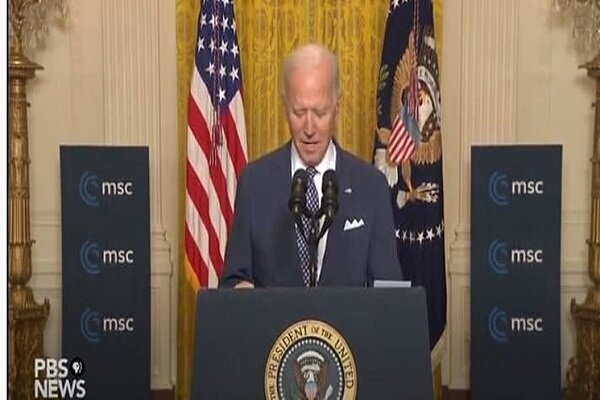
TEHRAN - The Biden administration has already taken several steps that Tehran will view as an indication that President Joe Biden is very keen to avoid a confrontation and is eager to negotiate, according to the National Interest.
Iran and the U.S. are very interested in the same thing: in first talking about talks, and then negotiating some more. Iran’s Supreme Leader Ayatollah Ali Khamenei asserted that the United States “must lift all sanctions in practice” before Iran will return to the commitments it made as part of the nuclear deal. President Joe Biden holds that the United States will not remove the economic sanctions against Iran unless Iran fulfill its commitments under the accord.
“The United States is committed to not letting Iran develop a nuclear weapon. However, if sanctions do not work and Iran continues to enrich more and more uranium, making a material that can be used in a nuclear weapon, then the United States would have to use force to put a stop to it,” the National Interest claims.
Contrary to certain claims, Iran has declared production, stockpiling and use of weapons of mass destruction (WMds) as haram (religiously banned). It is a fatwa, religious decree, declared by Ayatollah Khamenei, Leader of the Islamic Revolution.
Actually, the Biden administration is less inclined to engage in another war in the Middle East (West Asia). His administration faces a very long list of challenges, including dealing with the pandemic and reviving the economy, addressing climate change, and responding to demands for social justice. Obviously, allocating resources to a war in the Middle East (West Asia) will decrease the resources that are available for domestic purposes.
Acknowledging the wars in Afghanistan and Iraq cost trillions, the publication said, “Recent armed interventions carried out by the United States have resulted in immense bloodshed and the United States has extremely little to show for these drives. In effect, they demonstrated that the United States is weak, in alliance with corrupt governments, ones that make short shrift of individual rights and that are increasingly leaning toward Iran. In short, the Biden administration has strong reasons to seek to avoid war with Iran.”
According to the National Interest, the Biden administration, in its first weeks, took several steps that Iran may consider as an indication that Biden is very eager to avoid a confrontation. It stopped helping the Saudis in the war against the Houthis. It removed the Houthis from the list of terrorist organizations. It appointed Robert Malley as the envoy for Iran. Malley is widely known as an “advocate for engaging with groups and governments,” including those that are enemies of the United States and its allies.
Critics contend that Malley is “overly sympathetic to foreign actors including Iran.” (Last year, he promoted the idea that the United States might persuade Iran to negotiate by removing its objection to Iran getting a coronavirus-related loan from the IMF.) The aircraft carrier Nimitz left the Persian Gulf region. The Biden administration did not react to a report that Iran has resumed nuclear activities.
Pointing to foreign policy speech made by Joe Biden, the National Interest writes, “Since taking office, Biden pledged to confront human rights abuses, tyranny and intolerance in China, Russia, Myanmar and elsewhere while seeking cooperation with competitors where possible. However, Iran escaped the list. The Biden administration has announced that it is reviewing arms deals with the United Arab Emirates (UAE). The UAE is allied with Iran’s opponents. They are likely to be interpreted by Iran that the Biden administration is very interested to avoid a confrontation and make at least some concessions.”
Preparing the public for what is to come, the new secretary of state, Antony Blinken, stressed, “Iran is out of compliance on a number of fronts. And it would take some time, should it make the decision to do so, for it to come back into compliance and time for us then to assess whether it was meeting its obligations.” The Biden administration’s commitment to coordinate with the EU and Russia also will moderate the U.S. position, because these parties are keen to do business with Iran and are not interested to confront it. Fareed Zakaria put it simply, holding that the Biden administration’s position that Iran must be back in compliance with the agreements of the Joint Comprehensive Plan of Action (JCPOA) before the U.S. can rejoin the deal is “largely a tactic to avoid confronting the issue.”
TAGS

No comments:
Post a Comment